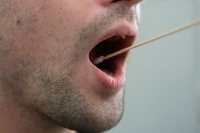Australian Government Random Testing Welfare Claimants
Wednesday 30 August, 2017 Written by Alice Klein, New Scientist
The Australian government is planning a two-year trial of random drug tests for welfare recipients starting in January 2018.
ABC Comment: Though there are no plans to test Australian Politicians.
If approved by parliament, the trial will enlist 5000 people who apply for government income support because they can’t find work or are studying.
The group will be required to undergo random saliva, urine or hair tests to see if they have consumed illicit drugs, including methamphetamine, MDMA, cannabis or heroin.
If they test positive, 80 per cent of their welfare money will be moved to a BasicsCard, which can only be used to pay for food, rent, childcare and other essential items. If they test positive more than once, they will be referred to a medical professional for addiction treatment.
On Sunday, the government finalised the three locations where the trial will take place: Canterbury-Bankstown in New South Wales, Logan in Queensland, and Mandurah in Western Australia. The areas were chosen for their relatively high levels of unemployment and drug use.
The aim of the policy is to help job seekers “to receive the help they need to get on a path towards securing a job and building a better future for themselves and their families,” the minister for social services Christian Porter said in a statement last week.
Unsuccessful elsewhere
However, medical groups including the Royal Australian College of General Practitioners (RACGP), the Australian Medical Association (AMA) and the Royal Australasian College of Physicians have raised concerns about the plan.
Drug testing of welfare recipients has previously had little success in New Zealand, and in Utah and Missouri in the US. In New Zealand, for example, 8,001 welfare recipients were drug-screened as part of a NZ$1 million programme, but only 22 tested positive. Studies of compulsory treatment for drug problems have also found limited benefits.
“Substance addiction is a complex, chronic relapsing medical condition,” says Hester Wilson, chair of the RACGP’s addiction medicine network. “One of the hallmarks is an inability to change behaviour despite harm, so punitive approaches don’t tend to work.”
Addiction treatment is most effective when people are allowed to make decisions with medical professionals, Wilson says. “A BasicsCard might be a good idea for some patients, but it’s going to work best if they choose to go on it because they want to change, not when they’re forced.”
AMA president Michael Gannon also cautions against punishing welfare recipients who use drugs. “The populist idea is that there are armies of drug-addled people bludging off the welfare system,” he says. “But the reality is, we’re talking about some of the most vulnerable people in the community who need a hand up.”
“These proposed measures will only serve to marginalise and stigmatise an already-impoverished group,” says Gannon.
The Australian government says it will extend drug testing to all welfare recipients if the trial is successful.
Leave a comment
Make sure you enter all the required information, indicated by an asterisk (*). HTML code is not allowed.
Join
FREE
Here










